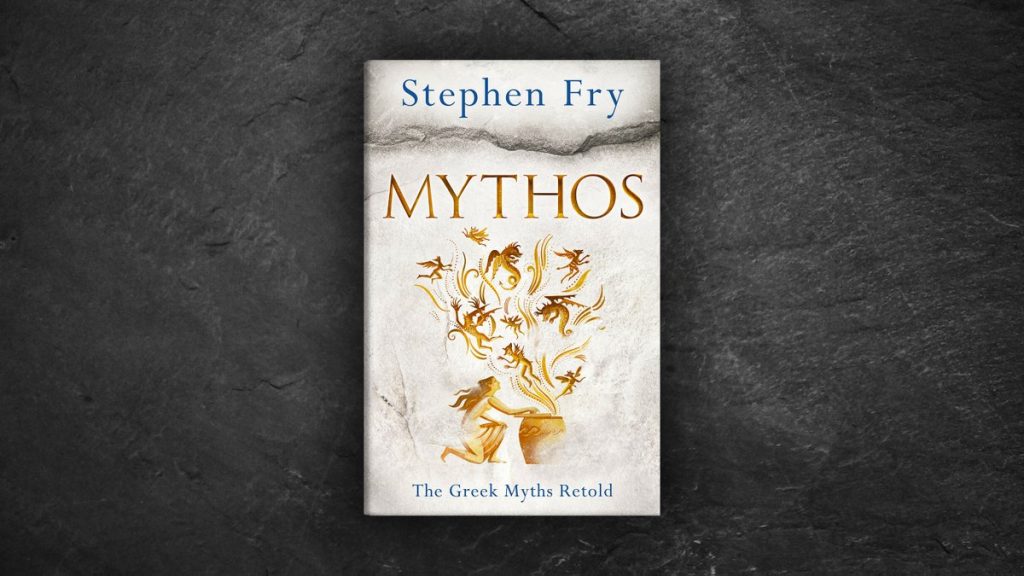Stephen Fry – ‘Mythos’
St David’s Hall
Writer, comedian, TV personality, and all-round national treasure Stephen Fry finished off a mini-tour in aid of his new book Mythos in Cardiff on Wednesday 7th November. Mythos is Fry’s retelling of the Greek myths, told as if he were Homer or Aeschylus telling the stories for the first time, but peppered with facts taken from modern understanding, footnotes on pronunciation, and Fry’s own unique brand of wry humour.

Mythos, by Stephen Fry – Image Credit Waterstones
A packed-out St David’s Hall listened attentively, many with their own brand-new copies in hand. It was not a lengthy affair, unlike the days when Charles Dickens would read from A Christmas Carol to rapt audiences. After a brief greeting, in which he stated in flawless Welsh that he enjoyed Jaffa Cakes, he talked the audience through the Greek creation myth. More accurately, it felt as if the audience were scholars listening to Homer deliver the story first-hand. So well did he recite the story that it seemed as if he had been there himself. One could almost believe that the book was written with no research at all, that it was something that arrived fully formed, as Athena came from Zeus’ head, a tome that Fry had been born to write.
Through the creation of the world, the audience was treated to visions of the birth of the Titans, and their war with the gods, and all the way to the arrival of the gods on Mount Olympus, all told with Fry’s usual wry humour and charming wit. Not wanting to simply recite the entire book, Fry stopped there and moved on to discuss why he felt such affinity for the Greek myths. He explained that they help show us the best and worst parts of ourselves, as all good stories do, in part because the Greek Gods are themselves very human. They are as proud, boisterous, fickle, and argumentative as any humans, but caring, devoted, and loyal.

Stephen Fry
To illustrate this point, the evening was rounded off by a recitation from the book itself, chosen by the audience: the story of Arachne. This is often a story used to illustrate the foolishness of hubris or excessive pride. Arachne is an exceptionally skilled weaver and boasts to a crowd of admiring villagers that she believes her skill to be superior to that of Athena herself. Fry made it clear, however, that his interpretation of the myth does not punish Arachne for being too proud, but instead serves to show how fickle and proud both gods and humans can be: Arachne believes herself to have exceptional skill, and states to herself and her audience that she thinks she is better than Athena only because Athena does many other things besides weaving, while Arachne’s life is consumed by weaving and weaving alone. This still proves to be her undoing, as when the challenge is issued by Athena (disguised as an old woman in the audience), Arachne is shown to be better, and is so afraid of Athena’s wrath that she instantly runs from the cottage and hangs herself from a nearby tree. Athena changes her into the first spider – as Fry points out, the first arachnid – so that Arachne’s talent will always live on.
Erudite, wry, and charming, Fry captivated the audience, and the book is just as enjoyable to read as Fry was to listen to. Accessibly written, the myths are retold with vivacity and are a joy to read for those just browsing, and especially for die-hard mythology fans like myself.




